Important Information
Programs
Courses
Residential Schools
International Students
Current Handbook
Glossary
By Course Code:
ACCT AINV ALLH AQUA ARTH ARTS AUDV AVAT BIOH BIOL BIOT BLAR BLCN BLOC BLSV BMED BMSC BOTN BUSN CHEM CHIR CNSL COIS COIT COMM COMT CQUN CREA CULT DGTL DNCE DRMA ECOM ECON EDCU EDEC EDED EDEL EDFE EDHE EDSE EDVT ENAC ENAE ENAG ENAM ENAR ENCO ENEA ENEC ENEE ENEG ENEM ENEP ENEV ENIM ENMG ENML ENMM ENPG ENPO ENRG ENSD ENSE ENTA ENTC ENTE ENTG ENTI ENTM ENTZ ENVH ENVR ESSC EVST FAHE FARM FILM FINC FSEH GENE GEOG GEOH GOVP HIST HLPB HLTH HLTP HMGT HMSC HRMT HUMT IEXC INDG JALC JAPN JAZZ JOUR LAWS LITR LNGC LNGE LOTE MARN MATH MBIO MDWF MEDI MEDS MGMT MMST MNTR MQPR MRKT MUSC NHLT NHPE NURS NUTR OCCT OCHS OLTC ORAL PERF PHRM PHYG PHYS PMSC PODI PPMP PROP PSIO PSYC RAIL RELG SAFE SCIE SKIL SOCL SOWK SPCH SREC STAT SWHS THTR TOUR VART WELF WRIT ZOOLBMED19012 Clinical Pathology
Course details
This course will provide students with an understanding of the diagnosis of disorders by the clinical pathology laboratory. The course is valuable for both Biomedical Science and Health Science (Nursing) students. Since both groups bring different prior skills and knowledge to the course, the content is tailored for each group. Both groups have individual text recommendations, separate study schedules and different assessment protocols.
Health Science (Nursing) students will gain an understanding of life processes, biochemistry and clinical chemistry as they relate to disease states and treatments. Nurses will gain an understanding of the role of the clinical pathology laboratory in modern nursing practice. The course focus is on the biomedical rationale for the diagnosis, prognosis and monitoring of red cells, white cells and platelets, blood electrolyte balance, blood gases, blood acid-base balance, vitamins and trace elements, diabetes mellitus, jaundice, cardiac and liver disease, gout and renal dysfunction. Nursing students will undertake a laboratory visit to a clinical chemistry laboratory and prepare a report.
Biomedical Science students usually already have a strong background in clinical biochemistry so the course focus for these students is in haematological diagnosis and techniques. The course focuses on red cell, white cell and platelet morphology and disorders, laboratory test procedures, automated instrumentation, quality assurance, haemostasis disorders, iron abnormalities, immunohaematology, cytochemistry and immunophenotyping. Biomedical students will gain experience in disease diagnosis using blood film morphology examination and an understanding of modern clinical laboratory instrumentation.
Course at a glance
| Career: | Undergraduate |
| Credit points: | 6 |
| Requisites: | Prerequisite:- CHEM11007 and ZOOL11005 or SCIE11007 or SCIE11019 |
| Student Contribution Band: | 2 |
| EFTSL: | 0.12500 |
Course availability
| Term | Campus |
|---|---|
| 2007 Term Three | FLEX HTD |
Course evaluation reports
Course evaluation results may be accessed using the Course Evaluation application in the My.CQU Portal at http://my.cqu.edu.au
PRINT WARNING - Printed copies of this document or part thereof should not be relied upon as a current reference document. ALWAYS refer to the electronic copy for the latest version.
